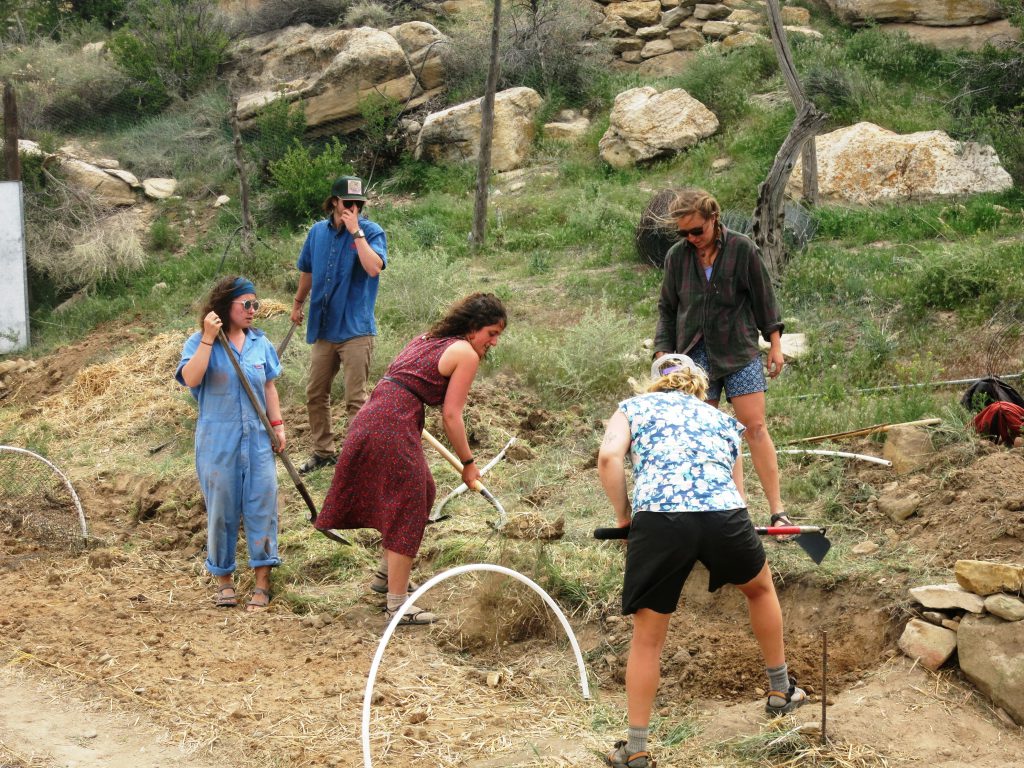
“What happens when life gets easy? You get lazy. You lose your momentum, your morals, your values,” a native Hopi woman and our host explained to us at her farm on the Hopi reservation. “That’s why we’re still here. Because life has never been easy for Hopi.”
In this section of the course, the group has been incredibly lucky to spend time on both Hopi and Navajo Reservations, where we’ve learned about their respective cultures first hand from the people that live it. One of our hosts welcomed us into her farm for a few days, a property which has been in her family for hundreds of years. In great detail, she enlightened us with the traditions, practices, food and beliefs of her people; concepts totally novel to us as participants of modern Western culture. She was also careful to explain the systematic and diabolic oppression unleashed upon her people by the U.S. Government throughout history; an oppression that remains seeded in Western culture today. However difficult, she explained Hopi history to be, she maintained a strong notion of resilience by the Hopi people.
Through waves of forced movement, murder, and religious imposition upon the Hopi people throughout hundreds of years, they have endured. In recognition of this cultural strength, I was dumbfounded. How could a culture such as the Hopi live on in the face of an entire country that wanted nothing less than to obliterate it?
In class we have defined the concept of resilience as a system’s ability to constantly return to a balanced state in a sea of positive and negative forces. However, given the presence of these ever-acting forces, resilience can also exemplify a system’s ability to change and adapt to great disturbance within its environment, however maintaining its ability to come to a regular, balanced state.
In Hopi culture, our host explained, it is deeply engrained values and practices that have maintained such resilience. Hopi tradition millennia old, like celebration of mother earth and father sky, culturally unique organic farming and technique, and a society structured by staunch equality and reciprocity represent only some of what has perpetuated Hopi peace and strength over such a grand and complicated tapestry of time.
Although peace has been declared, reservations set aside and formal apologies made, the struggle of the Hopi endures. Although Hopi Nation is sovereign by definition, the overarching presence of Western culture continues to weather Hopi. New age Western value of individuality, success and capital gain remain at war with Hopi tradition. Hopi youth are often incentivized to leave their reservations in search of better education and employment, leaving behind the wobbly economy and infrastructure left for them by the U.S. Government. Our Hopi host explained that to survive in the modern world, many young Hopi leave behind their culture so as to embrace these Western values of individual success, which often run opposite to Hopi thought around community and societal balance.
She described the subsequent weakening and loss of Hopi language, values and tradition.
However, she happily noted the persistence of Hopi heritage. Time has shown a revival: her children have returned to the land on which they were raised, and all in her family are encouraged to re-learn the language and participate in ceremony.
Growing up Jewish, my parents explained to me how important it was to stick to my culture. As a youngster, I don’t think I really ever understood why: my rationale was clouded with resentment for Sunday school and difficulty reading Hebrew.
Instead, as a confused adolescent, my values resided more with myself. Fitting in yet standing out, being liked by my peers, keeping up with fashion trends and possessing talent constantly swirled around my developing brain, leaving very little room for attention toward, let alone appreciation for, my culture. My culture that taught me morals and values, life lessons and the importance of family, gratitude and humility. I threatened my parents relentlessly with the promise that after I became bat-mitzvah, I would ditch my culture and everything I had learned for good.
However, Judaism too thrives off of its own resilience in a world that has never wanted it to. It wasn’t until I learned about these impositions of threat and violence throughout history that I came to understand the resilience of, and pride, I have for the Jewish culture. For no matter how hard survival has been for the Jewish people, it too remains, through tradition, community and celebration. And even in a society of aggressive individualism, I find that my Jewish heritage is always something I can draw back to.
In a world of change, culture is dynamic, culture is resilient.